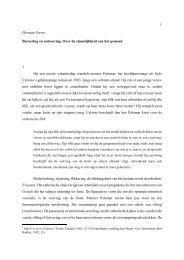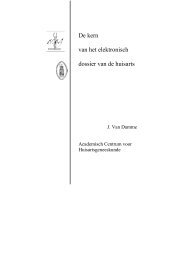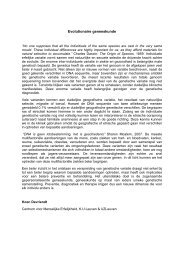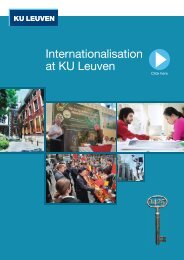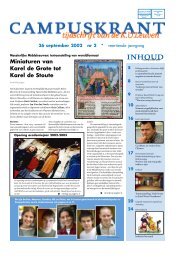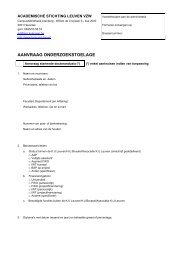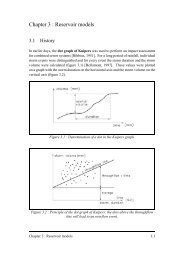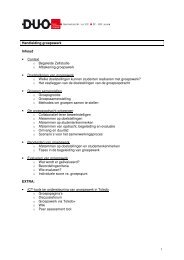EQUALITY GUIdE - KU Leuven
EQUALITY GUIdE - KU Leuven
EQUALITY GUIdE - KU Leuven
Create successful ePaper yourself
Turn your PDF publications into a flip-book with our unique Google optimized e-Paper software.
126 Equality Guide<br />
confronted with the reluctance of the older staff and the shortage of funds. The productivity<br />
was hampered by feuds between departments and professors and nothing was<br />
done to mend matters. They did not have a say in certain matters and felt they needed<br />
new challenges.<br />
Three men were also disappointed with the atmosphere at work, although it was not<br />
their main motive to leave. They complained about the absence of intellectual debate,<br />
their uninterested colleagues, the absence of an international network, the time-consuming<br />
meetings etc. Five men said the relationships with their superiors were very<br />
hierarchical and even dictatorial. Co-operation was not always appreciated.<br />
5.4.2.2. Views on gender in academic circles 138<br />
Most of the interviewed women (11) and men (10) think gender plays an important<br />
role in the advancement of an academic career, as they can derive from the low number<br />
of women at the academic top. However, very few people gave a circumstantial<br />
explanation. Most researchers think it is not due to overt discrimination, but point to<br />
individual choices, social and cultural factors and organizational aspects. Besides the<br />
explanations below, two men blame the patriarchal atmosphere between supervisors<br />
and PhD-students, others think women are less self-confident in a male-dominated<br />
world or have to fight more to advance to a higher position. Some women said that the<br />
prototype of a scientist is still male and strongly believe that female researchers have to<br />
be better than their male competitors.<br />
5.4.2.2.1. Competitiveness and ambition<br />
Three men and three women think women’s restraints with regard to heavy competition<br />
are crucial for the under-representation of women. They think women are less<br />
competitive and withdraw more often from the race. However, as became clear above,<br />
as many men as women considered the fierce competition a motive to leave the university<br />
and seven male researchers equally regretted this aspect. Moreover, although<br />
eight men clearly chose to do a PhD, seven of the interviewed men did not aspire a<br />
professorship and six of them did not start their research with a clear goal of what they<br />
wanted to achieve. Three men were still in doubt whether to go on or not. What is<br />
striking, is a general absence of career planning and a dim view on the future.<br />
This is different for the female researchers. Although slightly more women (8) than men<br />
said they did not aspire a professorship, only three women did not have a career planning<br />
in mind, and three would have liked to become a professor. As many women as<br />
men made a well-considered choice to do a PhD. Many more women (10) than men<br />
(4) emphasized the necessity of support in the advancement of a career, rather than<br />
ambition or merit. Comparably, eight women sometimes asked themselves whether<br />
they would be able to make it, whereas only three men doubted their capacities.<br />
138 See table 2.8 in the Appendices.



